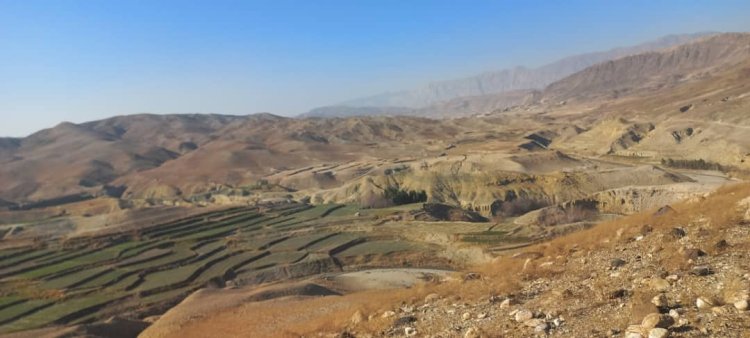The Impact of Excessive Deep-Well Drilling on Groundwater in Afghanistan

In recent years, Afghanistan has faced severe droughts, and in some regions, even wells and traditional qanats (underground water channels) have dried up. As a result, many families have been forced to leave their homes and farmland. In several provinces, people complain that indiscriminate and unregulated deep-well drilling has lowered the groundwater table, raising serious concerns.
Local Problems in the Provinces
Farah
Nauman, a resident of Bala Buluk district in Farah province, says that consecutive droughts have reduced groundwater levels, leaving people with a shortage of clean drinking water. He stresses that many farmers are drilling deep and medium-depth wells with drilling machines, using water recklessly, and even wasting it on their fields. “Rainfall is not like it used to be; drought is worsening day by day. On one hand, there is drought, and on the other, people have turned to deep wells, which has further lowered the water table,” Nauman explains.
Samangan
Nazifullah, a resident of Samangan, says that in both the city and surrounding districts, groundwater levels have dropped by about five meters due to deep-well drilling. He warns that if this problem is not addressed, household wells will dry up in the coming years, and farmland will become uncultivable. “No one is doing anything to prevent drought. As long as someone finds water for themselves, they don’t care about others. Because of the water shortage, crops have withered, farmers’ livelihoods have deteriorated, and daily life is becoming extremely difficult. The drilling of deep wells must be stopped,” he says.
Helmand
Residents of Helmand are also deeply worried about declining groundwater levels. Subhanullah, a resident of Lashkargah, says that deep-well drilling has increased so much that in some areas household well water has dropped by three to six meters. He urges the authorities to stop unregulated well drilling before a water crisis emerges. “People should refrain from drilling deep wells out of a sense of solidarity, because the water table has dropped drastically, and in many districts, crops have dried up due to water shortage,” he explains.
Nangarhar
In Nangarhar, lands that had remained uncultivated for decades are now being farmed, as farmers extract groundwater using solar-powered pumps. Zainullah, a resident of Bati Kot district, says: “Here, every farmer uses solar power and water pumps for irrigation because the qanats have dried up. If people instead used river water or diverted canals to irrigate their fields, not only would the shortage of clean drinking water be prevented, but unnecessary expenses would also be avoided.” He warns that the extensive use of deep wells and pumps will further deplete the groundwater table, leading to a shortage of clean water in the future.
Causes of Groundwater Decline
According to agricultural and water expert Mohammad Hilal Khuruti, climate change, repeated droughts, excessive water consumption, and widespread deep-well drilling are the main causes of groundwater depletion. He explains: “In most parts of Afghanistan, farmers extract groundwater for agriculture on their own, without regulation. This is unsustainable and contributes to environmental degradation. It is essential to build check dams and ensure that people use water according to their actual needs.”
Consequences and Concerns
Khuruti emphasizes that drought is not just a climatic issue but a multidimensional crisis with economic, social, and environmental consequences that threaten farmers’ livelihoods. The economic impact is severe: many families face a sharp decline in income, and countless households have lost their livelihoods entirely.
Solutions and Recommendations
Experts recommend building small check dams for irrigation, diverting river water to farmland, and encouraging people to use water according to actual needs. They also stress that unregulated and unnecessary deep-well drilling must be stopped to preserve groundwater levels.
Conclusion
Groundwater depletion is one of Afghanistan’s greatest challenges today. Authorities and relevant institutions must take urgent action to control this crisis. Without intervention, people will face serious hardships, and agriculture and livelihoods across many regions will be severely affected.
